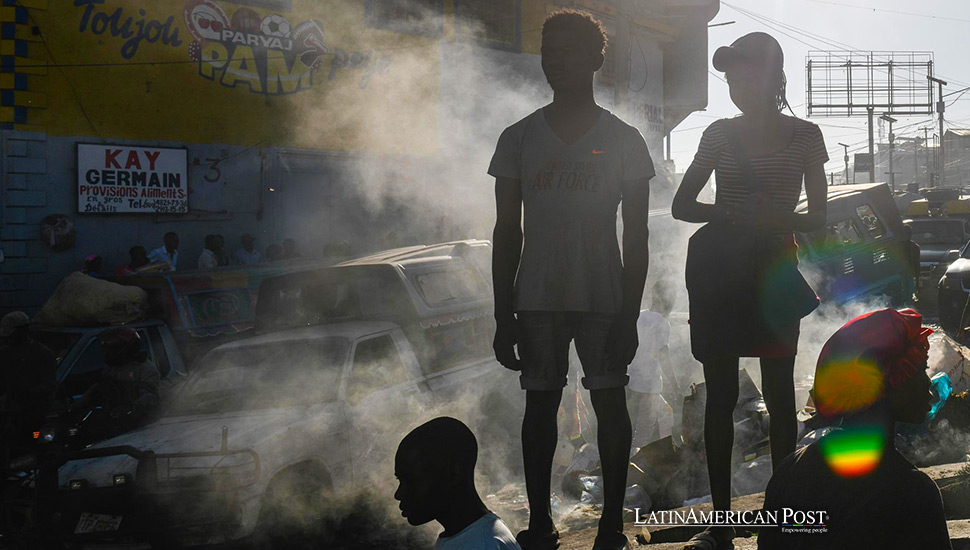Dominican Republic’s Deportation Dilemma: Hispaniola’s Humanitarian Crisis

As Haiti grapples with escalating gang violence, human rights activists urge the Dominican Republic to pause deportations, highlighting the dire situation. This plea reflects wider Latin American challenges in managing humanitarian crises and upholding human rights amidst regional instability.
In the heart of the Caribbean, the island of Hispaniola, shared by Haiti and the Dominican Republic, is witnessing a humanitarian and political crisis that underscores a broader regional struggle. Human rights activists are urging the Dominican Republic to halt deportations as neighboring Haiti spirals into chaos due to rampant gang violence. This situation highlights the immediate human suffering and reflects the complex interplay of migration, security, and humanitarian concerns that many Latin American countries grapple with.
Escalating Crisis in Haiti
Haiti’s current turmoil, marked by a surge in deadly gang activities, has plunged the nation into one of its darkest periods. The violence has paralyzed parts of the capital, Port-au-Prince, leading to a mass exodus of civilians seeking safety. The Dominican Republic, sharing a border and a tumultuous history with Haiti, has become a focal point for those fleeing the chaos. Reports from San Cristóbal, a Dominican city close to the border, depict scenes of Haitians being transported in modified trucks with cages, a stark image of the crisis at hand.
Against this backdrop, the Dominican Republic’s government faces criticism for its ongoing deportation campaign. Activists and organizations like the Dominican-based National Coalition for Migrations and Refugees argue that halting deportations temporarily could provide critical relief to Haitians caught in the crossfire of gang warfare. The United Nations has also echoed this call, highlighting the difficult conditions in Haiti and advocating for a cessation of deportations across the region.
Dominican Republic’s Response
The Dominican government, led by Foreign Minister Roberto Álvarez, insists that the deportations are part of a national security strategy, claiming adherence to international conventions and human rights treaties. However, allegations of abuse during deportation processes have surfaced, painting a complex picture of the Dominican Republic’s struggle to balance national security with humanitarian concerns. The country has deported over 23,900 people in the current year, sparking debates on the ethical and legal implications of such actions.
The crisis on Hispaniola resonates across Latin America, where many countries face similar dilemmas. Nations like Venezuela, Nicaragua, and parts of Central America have seen significant outflows of migrants and refugees due to economic hardship, political unrest, and violence. The response of neighboring countries to these migrations often fluctuates between solidarity and stringent security measures, reflecting a broader regional tension between humanitarian obligations and national interests.
Haiti’s Descent into Chaos
Haiti’s descent into chaos, with gangs overrunning the capital and causing widespread displacement, highlights the country’s profound instability and governance vacuum. The international community’s hesitance, reflected in the paused deployment of a Kenyan police force to combat the gangs, underscores the complexities of international intervention and the urgent need for a political solution in Haiti.
The ongoing crisis has significant humanitarian and political implications for Haiti, the Dominican Republic, and the wider Caribbean and Latin American region. The Dominican Republic’s deportation policy, set against Haiti’s escalating violence, raises critical questions about the responsibilities of states to protect refugees and asylum seekers under international law.
Looking Forward
The unfolding situation in Hispaniola necessitates a nuanced approach, balancing the enforcement of national policies with the urgent need to provide sanctuary to those fleeing violence and instability. As the Dominican Republic contemplates its next steps, the international community’s role in supporting both nations to achieve stability and respect human rights is crucial.
Also read: Dominican Republic Leads Americas in Anti-Corruption Efforts, Gains Recognition
The crisis on Hispaniola, with its deep historical roots and contemporary challenges, serves as a poignant reminder of Latin America’s enduring complexities. The plight of Haitians seeking refuge in the Dominican Republic amidst gang violence illuminates the broader regional struggles with migration, security, and humanitarian response. As Hispaniola navigates this problematic chapter, the actions taken by local and international actors will have lasting implications for the island’s future and the broader Latin American response to similar crises.





